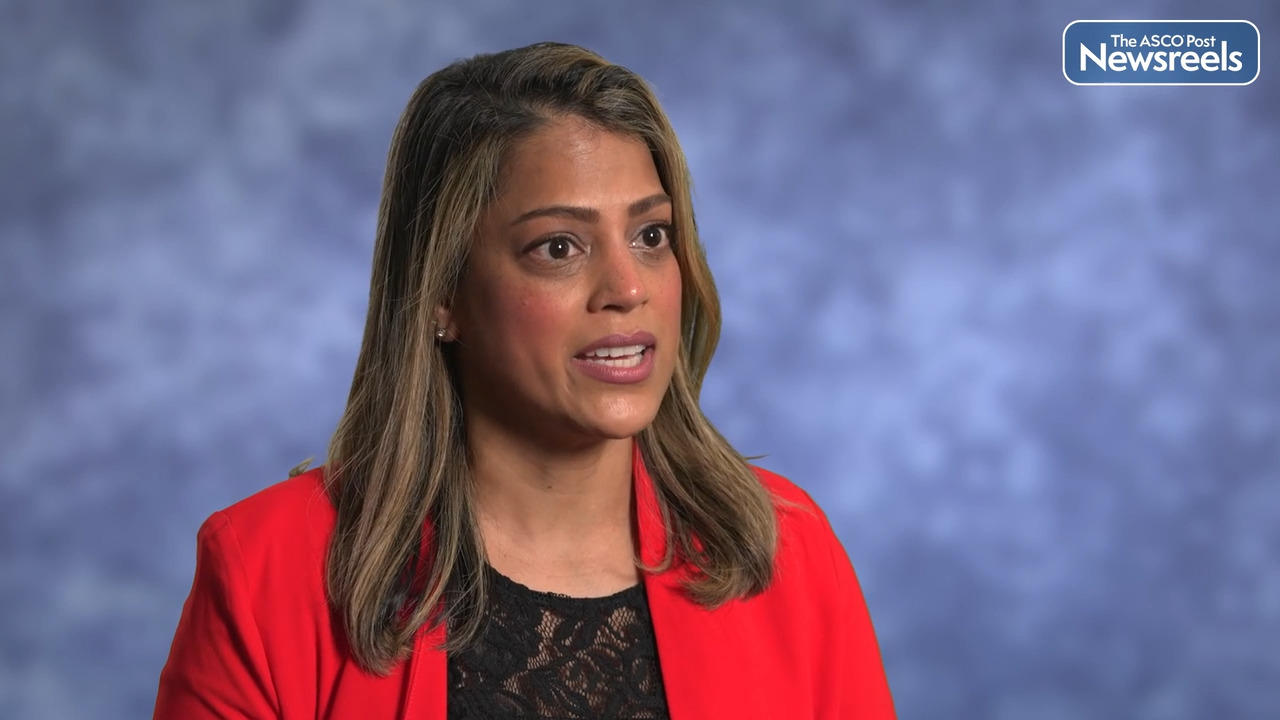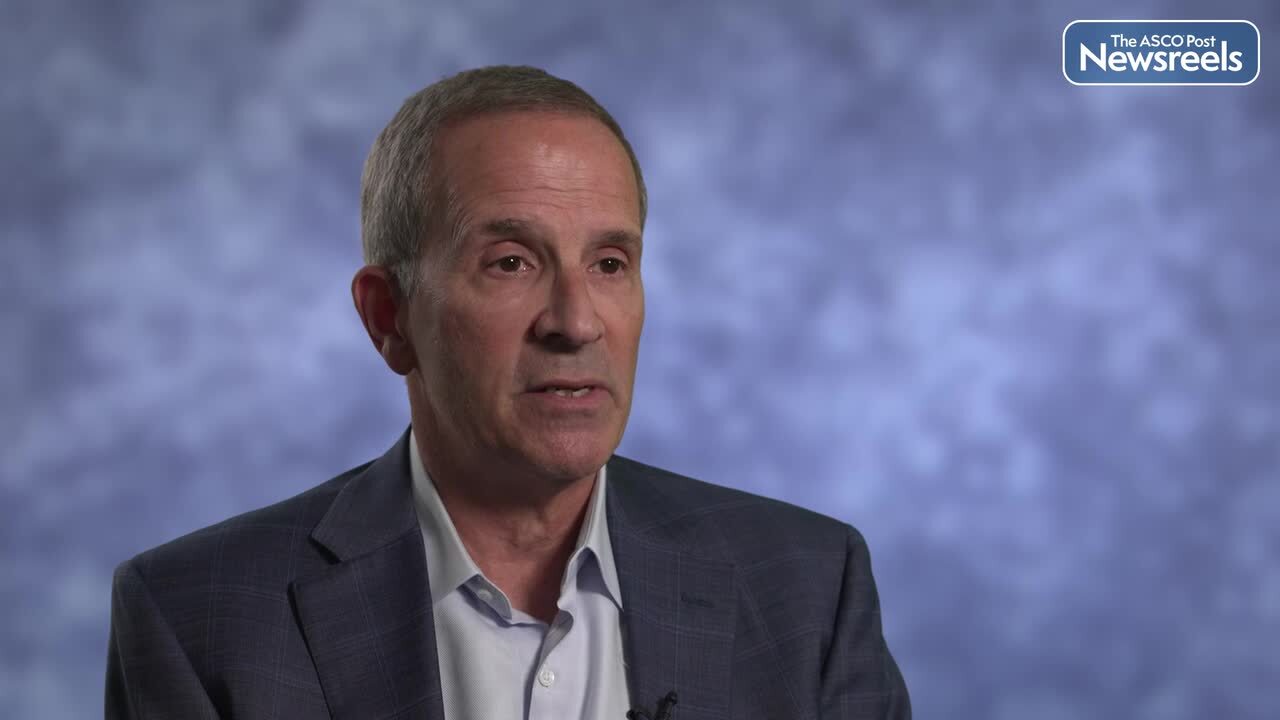Related Videos
John B.A.G. Haanen, MD, PhD, on Melanoma: Phase III Data on Treatment With Tumor-Infiltrating Lymphocytes vs Ipilimumab
John B.A.G. Haanen, MD, PhD, of The Netherlands Cancer Institute, discusses recent phase III findings, which show that tumor-infiltrating lymphocytes (TILs) improve progression-free survival compared with ipilimumab by 50% in patients with advanced melanoma after not responding to anti–PD-1 treatment. Around 50% of TIL-treated patients had a response, and 20% had a complete response (Abstract LBA3).
Sapna P. Patel, MD, on Melanoma: New Data on Pembrolizumab, Adjuvant vs Neoadjuvant Plus Adjuvant
Sapna P. Patel, MD, of The University of Texas MD Anderson Cancer Center, discusses the latest findings from the SWOG S1801 trial, which showed that using single-agent pembrolizumab as neoadjuvant therapy improved event-free survival compared to adjuvant therapy in high-risk resectable stage III–IV melanoma (Abstract LBA6).
Jonathan E. Rosenberg, MD, on Urothelial Cancer: Results From EV-103, Cohort K on Enfortumab Vedotin and Pembrolizumab
Jonathan E. Rosenberg, MD, of Memorial Sloan Kettering Cancer Center, discusses recent findings on the safety and antitumor activity of enfortumab vedotin-ejfv given intravenously as monotherapy or in combination with pembrolizumab to previously untreated cisplatin-ineligible patients with locally advanced or metastatic urothelial cancer (Abstract LBA73).
Neal D. Shore, MD, on Prostate Cancer: Biomarker Analysis, Enzalutamide, and Active Surveillance
Neal D. Shore, MD, of Carolina Urologic Research Center/Genesis Care, discusses new data from the ENACT trial, which showed that patients with prostate cancer and the RNA biomarkers PAM50 and AR-A were likely to have better outcomes with enzalutamide treatment. The results suggest that such RNA biomarkers may help to identify patients who may benefit from enzalutamide treatment compared with active surveillance (Abstract 1385P).
Rahul Aggarwal, MD, on Prostate Cancer: Phase III Data on Apalutamide and Androgen Deprivation in Relapsed Disease
Rahul Aggarwal, MD, of the University of California, San Francisco, discusses recent data from the PRESTO study, which showed that apalutamide plus androgen-deprivation therapy (ADT) for 12 months significantly prolonged PSA progression-free survival compared with ADT alone in patients with biochemically recurrent prostate cancer. These results provide support for the intensification of ADT in this setting. (Abstract LBA63).





